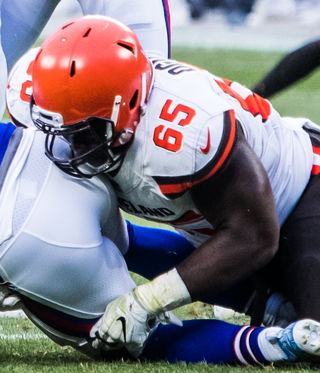Sport and Competition
Get Out of Your Head and Into the Game
How to focus on the task at hand, not on distracting mind-chatter and emotions.
Posted May 7, 2020
Does ceaseless mind-chatter and nagging emotion keep you from doing your best when playing a sport? You are not alone. Athletes from rookie youth participants to the most accomplished professionals grapple with this daunting challenge. Some successfully, some not so much.
Athletes that fail the above challenge may never reach their full potential. Many will end their sport participation prematurely in a sad heap of stressed frustration, bailing on an activity that was supposed to deliver healthy enjoyment.
What exactly do successful athletes do to get out of their head and into the game?
Let’s explore.
Get in the moment, be in the moment, stay in the moment
Coaches at all levels of sport preach the importance of playing in the moment. Elite athletes often speak about the challenge of staying focused and undeterred by the many distractions that can take them out of the moment.
Cleveland Indians’ Outfielder Greg Allen bounced back and forth between the Indians and the minor leagues during the 2018 baseball season. When questioned by the Cleveland Plain Dealer about how he handled that ordeal, he offered this insight: “More than anything (it taught me) to try and keep myself mentally and physically in that place wherever my feet may be,” Allen reflected. “Whether it was down in Columbus (Indians’ Triple-A farm team) or up with the big-league team, focus on what I can do and what I control, and go from there.”
Distraction from the “the moment” can be triggered by external circumstances, such as crowd noise, spectator antics, and questionable officiating or by internal experiences, like the constant barrage of thoughts and emotions we humans encounter.
Regardless of where these distractions originate—outside “noise” or inside “noise”—they only become problematic when athletes dwell on them. Even external triggers become internal “noise” when the person lingers on them.
Let's start here
The problem begins with words, the building blocks of thinking. Without words we could not fabricate the distracting thoughts and stories our minds ceaselessly chatter at us. That is not to say that all thinking is bad, but during athletic competition and other high-pressure endeavors it can be a detriment to optimal performance
Consider young, pre-language children without the words to form thoughts. They hear a creaking sound late at night in their darkened bedroom. Their nervous system triggers a natural startle response resulting in crying and screaming, a response designed to protect the child from harm as mom and dad rush in to save the day.
Five years later, that child hears the same noise, but this time they are equipped with words and thoughts. Their mind creates a story about the noise. A simple creak becomes a hiding monster, ghost, or zombies—fear-inducing mind-chatter that exponentially raises the child’s panic.
Unfortunately, we do not outgrow such disruptive thinking. It worsens as our vocabulary and language abilities develop and life experience expands, creating narratives of increased complexity. Monsters, ghosts, and zombies give way to self-doubt, failure, self-deprecation, it’s always me, etc. Further complicating matters are distracting emotions associated with those thoughts and stories.
Mastering skills such as ice skating or hitting a baseball is stressful enough. Dwelling on disapproving parents, mistakes, or getting cut from the team is like pouring gasoline on a fire, destroying optimal performance and enjoyment.
And do not believe for a moment that professional athletes are not plagued by such mental hijinks.
“Do you know what it’s like playing in a Super Bowl”? asked Britton Colquitt, current Minnesota Vikings punter, during an interview with me at Cleveland Browns’ 2019 training camp. “You’re terrified,” he revealed. “It gets in your mind that … 'if I screw this up, I could lose the Super Bowl.’” More on Colquitt later.

Solution
How can you conquer mind-chatter and harmful emotions that creep in during sport performance?
The answer might surprise.
Learn to stop listening to your mind. Disconnect from those distracting thoughts and narratives. The same with pesky, unwanted emotions. Instead of dwelling on thoughts and emotions, focus on the task at hand.
Understand that we do not control our random, at times, irrational mind. That piece of wisdom from the Contextual Behavioral Sciences. Not enough space, here, to review the supporting evidence, just remember that trying to control the uncontrollable—including thoughts and emotions—ends in futile frustration.
Instead of trying to control distracting thoughts, let them go. Trying to control thoughts and emotions will cause you to dwell on them more, and you know what happens with that.
Upon noticing a distracting thought or emotion during athletic performance, you have a choice. Will you dwell on the thought and emotion or pivot to behavior that produces optimal performance? Dwell on the missed basketball shot, or quickly drop back on defense when your opponent grabs the rebound?
Internationally renowned psychologist Russ Harris calls such a moment a “choice point.” Dwell on disruptive thoughts and emotions or choose, instead, to focus on productive actions. “Don’t think, just do,” as ancient Greek author Homer advised.
Harris, based on his expertise with Acceptance and Commitment Therapy (ACT), says thoughts and emotions are temporary experiences, like clouds floating by and disappearing—if you do not dwell on them. He advises to notice thoughts and emotions, accept them, and move forward with effective, committed action.
When confronted with distracting thoughts or emotions you are at a “choice point.” Remember Britton Colquitt, the punter terrified in the Super Bowl? “It gets in your mind that … 'if I screw this up, I could lose the Super Bowl,’“ he said.
Instead of that, Colquitt focused on one action-thought, “catch the ball,” he recounted. “You’re almost, like, frozen before that snap comes. I would be telling myself, ‘just catch the ball.’ Then my body and all the work I’ve done kicked in.
“I always relate myself to a golfer,” Colquitt continued. “Those guys go into a tournament trying to beat the guy they’re playing against. They try to put up their best score and hope it’s better than the other guy. They don’t dwell on the other guy.”
Good advice to not dwell on your competition, a common foible of athletes competing for a starting position, or individualized sports like golf. Unfortunately, we do not directly control other people. Dwelling on your opponent, therefore, creates added pressure that can inhibit optimal performance. Control the controllable, focus on yourself and your committed actions, and enjoy a more stress-free, productive performance.
Another example of an outstanding mental approach is current Cleveland Browns’ punter Jamie Gillan. Nicknamed “The Scottish Hammer,” Gillan was a star Rugby fly-half in Scotland and England, before turning to football.
“It sounds really silly, but the thing I do is I don’t think,” Gillen explained. “When I’m out there I just like to simplify things. I just face my target I’m gonna punt at. I just focus on ‘catch ball and punt it down the field.’”
A clarification, here. We cannot stop thinking, but we can focus on committed actions. Gillan is so focused on catching the ball and kicking it, his thoughts and emotions float away like clouds.
“I don’t focus on a lot, but catching the ball and doing my job,” Gillan elaborated. “That’s just me. You’re so focused on the moment you tend to block out everything. As soon as you start getting into your own head and start overthinking stuff, that’s when I start messing up.”
Mistakes are a common distraction for athletes. Mind-chatter and emotion connected to mistakes can disrupt optimal performance. Browns’ defensive tackle, Larry Ogunjobi, discussed this issue in a 2018 training camp interview with me.
“If I had a bad play, or something, I wouldn’t be able to flush it,” shared Ogunjobi. “Any time I mess up, now, I use it as a learning experience. I close my eyes and take a deep breath. I focus on—and try to make—the next play.
“When you dwell on things, all you do is dwell on the problem and what went wrong, Ogunjobi continued. “But you never take the step to find a solution. You get down on yourself, you sulk, and your problems continue to stack up on you. You get to the point where you can’t function.
Perhaps Reece Roussel, 12-year-old 2019 Little League World Championship MVP, summarized it best during a nationally televised interview: “I go to the plate, clear my mind, and wait for the pitch. See ball, hit ball,” the poised Roussel responded when asked to explain how he maintains his calm and focus.
Take charge and use your choice point wisely, as Roussel did, at your local youth-league game, high school athletic event, or neighborhood golf course. If a 12-year-old on an international stage can conquer mind-chatter and emotion, so can you.
You’ve got this!




